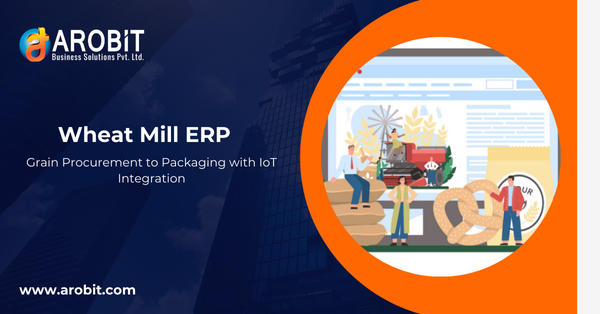The global software development services market is anticipated to surpass $1 trillion by the end of 2025, so it is important to avoid common mistakes to achieve successful outcomes. Mistakes in enterprise software development can lead to late delivery, exceeded budget, and substandard performance. Below are the top 10 mistakes to avoid, with suggestions on what to do instead.
10 Frequent Software Development Errors and How to Prevent Them
Mistake #1: Inadequate Requirements
Gathering Indistinct or incomplete requirements can negatively impact projects before they even start. A study indicated that about 31% of software projects fail due to planning and scope uncertainty.
- Consequences: Project changes, unclear goals, and expensive rework.
- Solutions: Stay engaged with stakeholders early, develop clear objectives, and prioritize features using established frameworks, such as MoSCoW.
Mistake #2: Not accounting for scalability
Not accounting for scalability in the design of systems can hold back growth in the long term. The market for enterprise software is growing at a CAGR of 6.35%, which means scalability cannot be optional.
- Consequences: Systems that cannot support increased data loads or data from more users.
- Solution: Future-proof architecture and cloud solutions like AWS or Azure, which 90% of organizations use today.
Mistake #3: Unclear Communication
Often, miscommunication between teams creates misaligned goals and delays projects.
- Consequences: A lack of clarity regarding roles and responsibilities and delayed timelines.
- Solution: Schedule periodic syncs to provide a touchpoint using a collaboration tool, like Jira or Trello, then update all impacted parties after each meeting.
Mistake #4: Don’t underestimate the integration requirements.
Failing to consider how new software will interact with systems already in place can create major disruptions in your operations.
- Consequences: things not working together and process inefficiencies.
- Solution: During the design phase of the process, be sure that the APIs are built to integrate on day one so that they work appropriately while using both systems.
Mistake #5: Incomplete Testing
Missing proper testing is one of the more dangerous mistakes to make while creating software. The software testing services industry alone is projected to grow by an 8% CAGR in the Asia-Pacific region.
- Consequences: Buggy software, unsecure software, poor user experience.
- Solution: Use automated testing and DevSecOps practices for continuous quality assurance.
Mistake #6: Picking a Tech Stack for the Wrong Reasons
If your developers choose a tech stack without the long-term implications, it will likely contribute to some level of technical debt.
- Consequences: Limits scalability; higher upkeep costs
- Solution: Align your team's tech stack decision with your project goals and trends within the industry. For example, JavaScript will be the most popular programming language for full-stack development in 2025.
Mistake #7: Disregarding User Experience (UX)
Users’ readiness to adopt software or applications is negatively influenced by bad UX design. Research indicates that a more intuitive design may allow the user to be 30% more productive.
- Consequences: Insufficient user engagement and lack of anticipated ROI.
- Solution: Execute user research at the beginning of the process and funnel user feedback throughout development.
Mistake #8: Not Taking a Security-First Approach
Security breaches can result in both financial loss and damage to an organization’s reputation.
- Consequences: costs associated with non-compliance and loss of company/customer data.
- Solution: Security measures should be considered at each level of development, beginning with threat modeling and including patching.
Mistake #9: Not Documenting
If you do not have documentation for your project, it can complicate maintenance and onboarding.
- Consequences: It takes longer for employees to troubleshoot issues, and the onboarding process takes longer.
- Solution: Keep documentation updated through the entire project lifecycle, using tools such as Git for version control.
Mistake #10: Not Supporting Software Post Launch
Most companies fail to recognize the importance of monitoring and updating post-deployment.
- Consequences: The system will ultimately deteriorate in efficacy.
- Solution: Allocate funding for sustained support services, for ongoing updates, bug fixes, and monitoring, as continuous improvement is necessary for business continuity.
FAQs
1. What is the biggest mistake in enterprise software development?
The number one mistake is poor requirements gathering that leads to scope creep, misalignment of goals, and, ultimately, costly rework.
2. Why is scalability important in enterprise software?
Scalability is important in enterprise software to ensure it can handle future growth in users, data, and functionality while avoiding performance issues and costly upgrades.
3. How can inadequate testing impact enterprise software?
When thorough testing is not performed, we increase the likelihood of deploying a project with defects, security vulnerabilities, and a poor user experience. This may disrupt business operations and potentially damage a reputation.
Final thoughts
It is vital to avoid these mistakes to get scalability, security, and ROI from enterprise software development. If these problems can be avoided—by properly planning, getting stakeholders involved, testing, and providing post-launch help—businesses will maximize their return from software development services. Surrounding yourself with experienced teams to help navigate the problem is critical.








